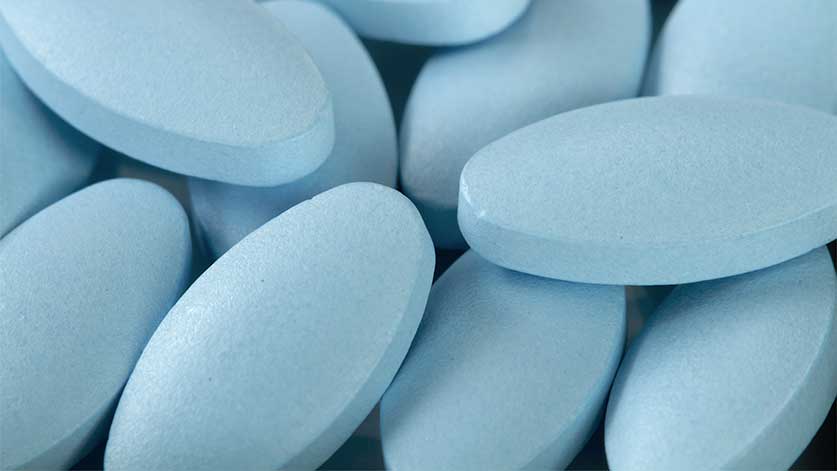Halcion (Triazolam) Overdose | Risk Factors, Symptoms, Treatment
It is possible to overdose on Halcion. This drug is a prescription central nervous system depressant, and it can cause respiratory depression in large doses. People who take too much Halcion may stop breathing.

Triazolam, the brand name for Halcion, is a benzodiazepine prescription drug and Schedule IV controlled substance according to the United States Drug Enforcement Administration (DEA). Halcion is prescribed short-term as it can lead to psychological or physical dependence.
This medication may be prescribed for those suffering from insomnia. However, because the drug is a central nervous system (CNS) depressant, which attaches to the gamma amino butyric acid (GABA) receptors, serious side effects can occur if Halcion abuse takes place.
Those who suffer from a Halcion addiction may take larger doses of Halcion than prescribed or combine it with other substances such as opioids, which can result in a life-threatening overdose that may require immediate medical attention.
Risk Factors For A Halcion Overdose
Those who take Halcion in large amounts are at risk of experiencing a Halcion overdose. In addition to this, there are other risk factors such as polysubstance use and route of administration.
Polysubstance Use
Since Halcion is a central nervous system depressant (CNS), it may interact with other medications, resulting in serious effects such as difficulty breathing.
As stated by the United States Food and Drug Administration (FDA), avoid the following drugs while taking Halcion to prevent any adverse reactions:
- opioids
- alcohol
- antibiotics such as clarithromycin or erythromycin
- antidepressants such as monoamine oxidase inhibitors (MAOIs) or nefazodone
- HIV medications such as ritonavir or lopinavir
- supplements or vitamins
- antihistamines
- muscle relaxants
- other benzodiazepines such as diazepam (Valium), alprazolam (Xanax), or lorazepam (Ativan)
- over-the-counter painkillers
- grapefruit juice
Combining any of these substances may result in a dangerous and deadly drug interaction due to the respiratory depression and breathing problems which may take place. Speak with your prescribing doctor before combining any of the medications.
Medical Conditions
Those with certain medical conditions may be more at risk of developing a Halcion overdose. For instance, those with sleep apnea or chronic obstructive pulmonary disease (COPD) may develop more breathing problems, leading to respiratory distress.
Route Of Administration
Those who partake in Halcion drug abuse may turn to alternative methods of allowing the drug to enter the body. Instead of taking the medication orally as prescribed, they may turn to injecting or snorting the substance.
When Halcion is injected or snorted, the drug enters the bloodstream more quickly than oral ingestion, which can increase the risk of overdose due to the large amount of the drug entering the body all at once.
Symptoms Of A Halcion Overdose
During a Halcion overdose, the common side effects of Halcion can become more pronounced. Common side effects consist of drowsiness, sedation, and lightheadedness. More serious side effects can occur, including memory loss, fluctuations in blood pressure, or sleepwalking.
In addition to these side effects becoming more pronounced and heightened, symptoms of a Halcion overdose may include:
- slurred speech
- severe drowsiness
- impaired coordination
- respiratory depression
- extensive sleepiness or unresponsiveness
- confusion
- coma
Halcion Overdose Treatment
If a Halcion overdose is suspected, do not wait to seek medical attention. Contact 911 immediately and let medical personnel know the drugs the person has taken in addition to Halcion, if any.
Those suffering a Halcion overdose may be taken to the emergency room and administered flumazenil, a benzodiazepine antagonist which can help combat benzodiazepine overdose symptoms.
Substance Abuse Treatment
Those who require flumazenil due to an overdose may suffer Halcion withdrawal symptoms. If a person takes part in a medical detox program as part of treatment, the body will be rid of unwanted toxins caused by the Halcion abuse.
Following a prescription drug overdose, professional treatment may be required.
If you or a loved one are seeking treatment for drug addiction, consider Ohio Recovery Center. At our treatment center, we offer medical detox, inpatient care, and multiple aftercare resources.
Reach out to one of our healthcare providers today to learn more about our treatment options.
- Anesthesia Progress https://www.ncbi.nlm.nih.gov/pmc/articles/PMC4068092/
- Drug Enforcement Administration (DEA) https://www.dea.gov/sites/default/files/2020-06/Benzodiazepenes-2020_1.pdf
- Food and Drug Administration (FDA) https://www.accessdata.fda.gov/drugsatfda_docs/label/2016/017892s049lbl.pdf
- National Institute on Drug Abuse (NIDA) https://nida.nih.gov/publications/drugfacts/prescription-cns-depressants
- National Library of Medicine: DailyMed https://dailymed.nlm.nih.gov/dailymed/drugInfo.cfm?setid=a0da0dba-a56d-486b-a45b-e8a7cdfbeac6
- National Library of Medicine: MedlinePlus https://medlineplus.gov/druginfo/meds/a684004.html

